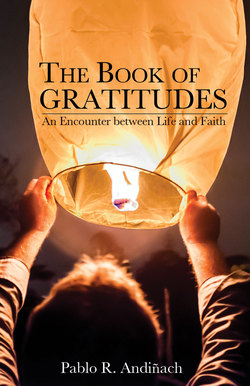Читать книгу The Book of Gratitudes - Pablo R. Andiñach - Страница 20
На сайте Литреса книга снята с продажи.
Beethoven and the Ninth Symphony
ОглавлениеTwo centuries earlier, Martin Luther had intuited that God was not reached by works and good intentions. The corollary of his thought was that in order to find Him it was necessary to put faith into play, because mere reason alone would not reveal His secrets. In the late 18th century, the poet Schiller suffered for that truth and composed his Ode to Liberty which was censored to read “Ode to Joy.”
His contemporary, Emmanuel Kant, gave form to this feeling and established through his implacable reasoning, that no matter how much we investigate the subject and however much science abounds in discoveries, God will not be reached this way. Perhaps Kant did not mean for things to be this way, but the great majority of his contemporaries who thrived on intuition and feelings, this meant that God was far from life, from relationships between persons and, especially, far from each other´s heart.
All these vectors led to one place and one person. That person was Ludwig van Beethoven, who, despite fierce deafness, composed one of the most celebrated musical works of our culture: his Ninth Symphony.
There are poets who feel constricted by syntax and chained by words, and they dream of breaking that structure. They seek to reduce words to their sounds. They long for the music of the syllables, rather than the objectivity of the words, and wish to emulate the musicians by nullifying meaning in their verses. Beethoven was driven down the opposite path. Dissatisfied with the sounds and scales he mastered as few could, tired of not being able to express what he felt, he did what no one had imagined, what only someone desperate could do: he put words to his symphony.
Now comes what we really want to convey, the justification of these lines. The world in which Beethoven lived was becoming distressed by the lack of divinity. God was no longer in things, God could no longer be found in lengthy pilgrimages to sanctuaries, and miraculous appearances were not to be trusted. It became known that a flower, however beautiful, no longer revealed the Creator. Also that human life was no guarantee of his existence. Even if for ages institutions—the Church, philosophy, reason—had ensured contact with God and the peace of His blessing, now everything was in the hands of each person. God is only found through faith, and faith is an act of will, an action that we have to perform, a human initiative subject to our ups and downs and our different moods. Sometimes we cling to it and at other times it escapes us.
Not surprisingly, Beethoven modified Schiller’s poem and rewrote it to his own taste. It is almost a paraphrase, a way of resorting to him without being tied by his words. What he could not say with music he said with borrowed words:
Brothers, beyond the stars
must a loving Father dwell. . ..
World, do you sense your creator?
Seek him then beyond the stars.
There are no longer certainties nor tutors. The God who can no longer be reached by reason has not abandoned humanity. He is still there and can be felt when we contemplate the immensity of the stars.
